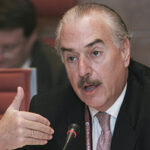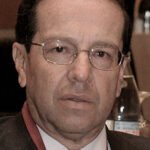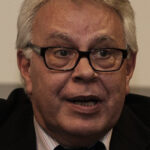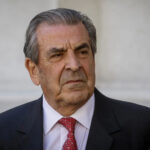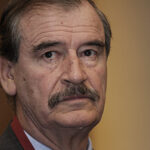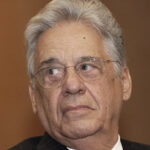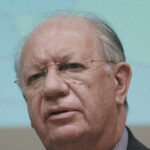Venezuela is competing against Ecuador, Panama and the Bahamas in elections to be held on October 28. Three out of the four will be able to represent Latin America and the Caribbean for three years. Venezuela’s deterioration of the human rights situation at home, its poor foreign policy on human rights, its lack of compliance with statements by UN rapporteurs and resolutions by the UN Working Group on Arbitrary Detention, and its obstructionist attitude during its tenure at the Human Rights Council in the past three years, are serious obstacles for it to be given a second opportunity to serve on this influential 47 member body.
The 2006 UN General Assembly resolution 60/251, which created the Human Rights Council, states that council members shall “uphold the highest standards in the promotion and protection of human rights” and “shall fully cooperate with the Council.” The government of Venezuela has failed to comply with these requirements.
In Venezuela, the concentration of power and lack of judicial independence have allowed the government to intimidate, censor, and prosecute its critics. Leaders of the political opposition have been arbitrarily arrested, prosecuted, convicted, and barred from running for office. High -level officials have routinely harassed journalists, human rights defenders, and less well-known critics, which has led to increasing self-censorship. Impunity of serious abuses committed by security forces during widespread anti-government protests in 2014 remains the norm.
In addition, the Venezuelan government has repudiated international human rights monitors. In the same period that it was serving on the world’s highest human rights body in Geneva, Venezuelan authorities rejected binding rulings of the Inter-American Court of Human Rights, prevented the Inter-American Commission on Human Rights from conducting in-country monitoring of human rights problems, and withdrew from the American Convention on Human Rights.
At the UN, the government has failed to implement the recommendations made by the Human Rights Council in the 2011 Universal Periodic Review of its record on human rights and has also refused to reconsider important recommendations that it rejected during the review process.
Venezuela has also failed to fully cooperate with the Human Rights Council’s special procedures system. The Special Rapporteur on Torture is the only UN expert who has been allowed to visit Venezuela in almost two decades. Since 1996, the government has only granted a single request from the UN, but even then, the Special Rapporteur on the Right to Food has been waiting for the government to confirm the dates for his visit for four years. Venezuela has also failed to even respond to visits requested by other special rapporteurs, including the rapporteurs on the right to freedom of opinion and expression, (requested in 2003, and reiterated interest in 2009), extrajudicial, summary or arbitrary executions, (requested in 2006, and sent a reminder in 2008), human rights defenders (requested in 2008, sent reminders in 2008 and 2010, and again reiterated request in 2015), independence of judges and lawyers (requested in 2011, sent a reminder in 2014), and freedom of association and assembly (requested in 2011 and sent a reminder in 2013).
In July 2015, a group of United Nations and Inter-American human rights experts publicly objected to Venezuela’s televised reprisals against rights defenders in retaliation for their human rights activities and cooperation with UN and regional human rights bodies. It is unacceptable that individuals and groups seeking to cooperate or cooperating with the UN human rights system face intimidation in Venezuela, especially since the government that was holding a leadership position within that same system at the time.
Furthermore, the government of Venezuela has rejected international efforts to promote human rights in other countries. In the past year, Venezuela has used its position on the UN Security Council to delay, and even block, action on human rights in Syria and South Sudan. As a member of the UN Human Rights Council, Venezuela voted down all resolutions spotlighting abuses committed by allied governments such as North Korea, Syria, Iran, Sri Lanka, Belarus, and Ukraine. Venezuela has among the worst voting records on country situations and demonstrated serious double standards in its approach to human rights violations at the Council.
Venezuela’s open disregard for its most basic international human rights obligations is incompatible with holding a seat at the Human Rights Council. To hold such a seat, the Venezuelan government must give clear signs that its attitude will change as of now. The best way to demonstrate that this will happen is by attending the pressing calls by those who, like the Club de Madrid or The Group Against Arbitrary Detention of the UN High Commissioner, claim for the immediate release of Leopoldo López, Daniel Ceballos and Antonio Ledezme and of all other individuals who are being held in detention for exercising their rights of opinion and peaceful demonstration, and by accepting that the UNASUR electoral oversight mission will be composed by all independent and qualified experts provided by the OAS, the UE and other international organizations, which are necessary to guarantee free and fair elections.
SIGNATORIES
Fernando Henrique Cardoso, President of Brazil, 1995-2003
Laura Chinchilla, President of Costa Rica,
César Gaviria, President of Colombia, 1990-1994
Felipe González, President of Spain, 1982-1996
Vicente Fox, President of Mexico, 2000-2006
Osvaldo Hurtado, President of Ecuador, 1981-1984
Luis Alberto Lacalle, President of Uruguay, 1990-1995
Eduardo Frei, President of Chile, 1994-2000
Ricardo Lagos, President of Chile, 2000-2006
Tuto Quiroga, President of Bolivia, 2001-2002
José María Sanguinetti, President of Uruguay, 1985-1990; 1995-2000
Andrés Pastrana, President of Colombia, 1998-2002
Sebastián Piñera, President of Chile, 2010-2014
Alejandro Toledo, President of Perú, 2001-2006



